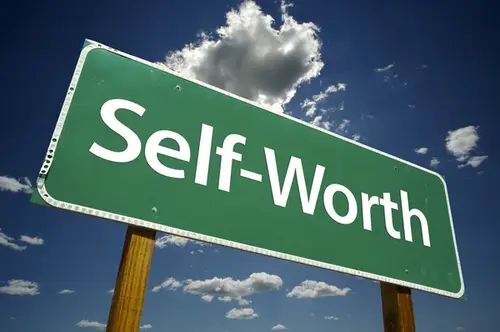Have you ever met someone who seemed too perfect? The kind of person who texts you good morning before you’ve even opened your eyes, sends flowers to your office “just because,” and somehow seems to love everything you love?
The person who makes you wonder: is this what true love feels like… or is something else going on?
For Anna, meeting Jason felt like stepping into a romantic comedy. Within days of matching on a dating app, he called her his “soulmate” and planned weekend getaways. His texts were constant, his compliments endless. He remembered every detail she shared and seemed to anticipate her needs before she expressed them.
Six weeks in, he was discussing marriage and had already introduced her to his family.
Three months later, Anna found herself isolated from those same friends, anxiously checking her phone when Jason didn’t respond, and constantly walking on eggshells to avoid triggering his sudden mood swings.
The passionate declarations of love had been replaced with subtle criticisms and emotional withdrawal whenever she didn’t meet his expectations.
What Anna experienced wasn’t love – it was love bombing, a manipulative emotional tactic narcissists and emotional manipulators often use to gain control over others – even their romantic partners..
As a platform for social impact, AlignUs is committed to helping our community recognize the difference between genuine connection and dangerous manipulation. By understanding the psychology behind love bombing, you can protect yourself and create space for authentic relationships that truly nurture your well-being.
The Highs & Lows of Love Bombing: Why It Feels Like a Dream… Until It’s a Nightmare
Love bombing is particularly dangerous because it activates the same neurochemical pathways as falling in love.
The method often works so insiduously because it can quickly create an intense “emotional high” by triggering powerful releases of dopamine, oxytocin, and serotonin – the very same brain chemicals responsible for feelings of pleasure, bonding, and happiness.
The Neurochemistry of Manipulation
When someone showers you with excessive attention, gifts, and affection, your brain responds by releasing dopamine, creating feelings of pleasure and reinforcing the desire to continue the relationship.
At the same time, physical touch and emotional intimacy release oxytocin – the “bonding hormone” – which establishes trust and attachment. This biochemical cocktail creates what feels like an unbreakable connection.
The intensity of these emotions can override your critical thinking skills. This is why victims often ignore obvious red flags that would be apparent in any other situation.
The Addictive Cycle
As the relationship progresses, the narcissist begins to withdraw the very affection and validation they used to hook you.
This creates an intermittent reinforcement pattern – the most addictive form of conditioning – where you become desperate to regain the emotional high of the initial love bombing phase.
In this withdrawal phase, you might experience:
- Anxiety and constant checking of your phone for messages
- Obsessive thoughts about what you might have done wrong
- A willingness to compromise your boundaries to regain approval
- Ignoring or minimizing concerning behaviors
- Defending your partner to concerned friends and family
Our personal growth podcast has examined how this cycle of idealization and devaluation keeps victims emotionally dependent and constantly working to regain the narcissist’s approval.
Why Do Victims Stay?
When the dream relationship begins to show cracks, many wonder: why don’t victims just leave? While every situation is unique, there’s powerful psychological conditioning taking place, which can manifest itself through a variety of outcomes:
- Trauma bonding: The alternating cycle of reward and punishment creates a powerful emotional bond similar to Stockholm Syndrome.
- Sunk cost fallacy: Victims often feel they’ve gone too far to turn back after investing so much emotionally in the relationship.
- Identity erosion: By the time the relationship turns openly abusive, the victim’s sense of self and reality may be so compromised that they no longer trust their own perceptions.
- Hope addiction: The unpredictable nature of receiving affection creates a gambling-like addiction to the relationship, where victims keep hoping for the return of the initial “perfect” partner.
Research shared on our positive social media platform shows that victims often blame themselves for the deterioration of the relationship, thinking if only they could be good enough, their partner would love them like they “used to” at the beginning of their relationship.
Is it Love or Control? How You Can Recognize the Red Flags of a Narcissist Early On
While genuine relationships develop organically over time, love bombing follows a predictable pattern designed to fast-track emotional dependency.
The Perfect Mirror Phase (Days 1-14)
During the early days, the narcissist mirrors your interests, values, and desires with uncanny precision. They study what makes you feel special and use this information to create a false sense of exceptional compatibility.
The Idealization Blitz (Weeks 2-8)
Once they’ve identified your emotional needs, the narcissist launches a campaign of excessive flattery, constant communication, and premature relationship milestones. This might include discussions of marriage, meeting family members, and declarations of having found their “soulmate” or “twin flame.”
The Subtle Shift (Months 2-4)
As your emotional dependency grows, the manipulator begins to introduce small criticisms, unpredictable mood changes, and subtle control tactics. This phase is often so gradual that victims don’t recognize the manipulation until they’re deeply entangled.
Red Flags to Watch For
Excessive Flattery and Idealization
- Compliments that feel overwhelming or focus exclusively on your appearance
- Claims that you’re “perfect” or “not like anyone they’ve ever met”
- Excessive praise for ordinary actions or qualities
- Statements suggesting you’ve “saved” them or given their life meaning
Accelerated Intimacy and Commitment
- Declaring love within days or weeks of meeting
- Pressuring for exclusivity immediately
- Discussing marriage or children very early in the relationship
- Using terms like “soulmate,” “destiny,” or “meant to be” to fast-track emotional commitment
A Blatant Disregard for Boundaries
- Showing up uninvited at your home or workplace
- Expecting constant communication and becoming anxious or angry when you’re unavailable
- Disregarding stated preferences or limits
- Making decisions for you without consultation
Frequent Attempts to Isolate You From Support Structures
- Expressing jealousy of close friends or family
- Making subtle criticisms of your support network
- Creating scenarios that force you to choose between them and others
- Insisting on spending all available time together
A Habit of Gift-Giving with Strings Attached
- Lavish or excessive gifts that make you feel indebted
- Using gifts as leverage in arguments (“After all I’ve done for you…”)
- Keeping score of their generosity
- Gifts that feel inappropriate for the stage of your relationship
The Manipulation Toolkit
The red flags listed above are only parts of a more extensive set of techniques that narcissists might employ during love bombing. When taken together, they can become incredibly dangerous.
Here are some of the more advanced manipulation tactics you might experience – often before you even realize damage is being done:
Future Faking: Making elaborate plans for the future without intention to follow through. This creates an illusion of commitment while keeping you invested in the relationship’s potential rather than its reality.
Trauma Mining: Encouraging deep emotional disclosure early on, then using this vulnerability as ammunition later. They may ask probing questions about your past traumas, insecurities, and fears, seemingly out of concern, but actually to gather information they can use to control you.
Love Triangulation: Creating artificial competition by mentioning ex-partners, potential romantic interests, or comparing you to others. This keeps you working harder for their approval and attention.
Gaslighting: When you raise concerns about their behavior, they deny your reality, making you question your own perceptions and judgment. They might say things like “You’re too sensitive” or “That never happened.”
Our health and wellness podcast has explored how these tactics aren’t random—they’re deployed strategically to create an emotional dependency that makes it difficult for the victim to leave once the abusive dynamics fully emerge.
Escaping the Cycle: Healing From Love Bombing & Rebuilding Self-Worth
The aftermath of a love bombing relationship can leave deep emotional scars. Many survivors experience symptoms similar to PTSD, including hypervigilance, trust issues, and profound self-doubt.
As explored in our personal growth podcast, the most devastating consequence isn’t just the pain of betrayal but the disconnection from your own inner wisdom and ability to trust yourself.
1. Breaking the Trauma Bond
The first challenge for many survivors is breaking the powerful emotional attachment to their manipulators. This bond can persist even when you intellectually understand the relationship was harmful. So, how do you go about breaking this bond?
- Implementing a strict no-contact policy (when safe to do so)
- Blocking all methods of communication to prevent reengagement
- Creating physical reminders of the relationship’s reality (such as a journal documenting manipulative incidents) to counter romanticized memories
- Seeking professional support to manage withdrawal symptoms
2. Reconnecting With Your Authentic Self
Love bombing often causes victims to lose touch with their own identity, preferences, and values. Reclaiming your authentic self is essential for healing.
This could look like spending intentional time alone – allowing yourself to rediscover your personal identity. Or, you might start implementing small acts of self-trust that build confidence in your own power and judgment over time.
3. Understanding Your “Vulnerability Factors”
Anyone can fall victim to love bombing, but certain factors can increase vulnerability. Understanding these isn’t about self-blame but building self-awareness and protection for the future.
Here are some common vulnerability factors:
- Recent losses or major life transitions
- History of childhood emotional neglect or inconsistent parenting
- People-pleasing tendencies or difficulty with boundaries
- Strong desire for emotional connection or romance
- Previous relationships with emotional manipulators
4. Rebuilding Trust in Yourself and Others
Perhaps the most challenging aspect of recovery is learning to trust again – both yourself and potential partners.
This can be one of the most challenging parts of the process of healing, requiring you to confront and overcome the fear of being hurt again. It’s important to remember that trust takes time and effort to rebuild, and it’s okay if you don’t fully trust yourself or others right away.
5. Processing the Grief
Many survivors are surprised by the intensity of grief they experience. This grief isn’t just for the relationship but for the future you imagined, the person you thought you knew, and parts of yourself that were compromised.
Mental health professionals emphasize that allowing yourself to grieve not just the loss of the relationship but the loss of the dream it represented is essential for full healing.
Authentic Love vs. Love Bombing
After experiencing love bombing, many survivors wonder if they’ll ever be able to trust their judgment in relationships again.
The good news is that genuine love follows very different patterns than love bombing, and learning these differences can help you cultivate healthy relationships in the future.
Our mental health podcasts series has identified these key differences between authentic love and love bombing:
| Authentic Love | Love Bombing |
| Develops gradually over time | Intensifies rapidly, seemingly overnight |
| Respects and encourages your independence | Creates dependency and isolates you from others |
| Honors your boundaries | Ignores or tests your boundaries |
| Allows for natural ebbs and flows in attention | Is consistently excessive or eventually withdraws completely |
| Makes you feel secure and at peace | Creates anxiety and emotional highs and lows |
| Shows consistent behavior in public and private | May display dramatic personality differences depending on audience |
| Accepts your authentic self, including flaws | Initially idealizes you, then criticizes formerly “perfect” qualities |
| Takes responsibility for mistakes | Blames you for relationship problems |
Empowering Yourself Against Love Bombing
Love bombing represents one of the most insidious forms of emotional manipulation in modern dating, precisely because it masquerades as the very thing we’re all seeking – deep connection and passionate love.
By understanding the psychology behind this tactic and learning to recognize its telltale signs, you can protect yourself while remaining open to genuine connections.
Remember that falling victim to love bombing isn’t a reflection of naivety or weakness—it’s a testament to your capacity for love and willingness to see the best in others. When balanced with healthy boundaries and relationship discernment, these qualities are strengths, not liabilities.
At AlignUs, we believe that by shining light on manipulative tactics like love bombing, we create collective awareness that makes these behaviors less effective and less prevalent in our dating culture.
Together, we can build a world where authentic connection thrives and emotional manipulation is quickly recognized and rejected.
Have you experienced love bombing in your relationships? Share your story or insights in the comments below, or join the conversation on our positive social media platform, where we’re fostering open dialogue about healthy relationship dynamics.
Remember: You deserve a love that builds you up without tearing you down, cherishes your independence while celebrating your connection, and grows stronger—not weaker—with time and deeper knowing.




